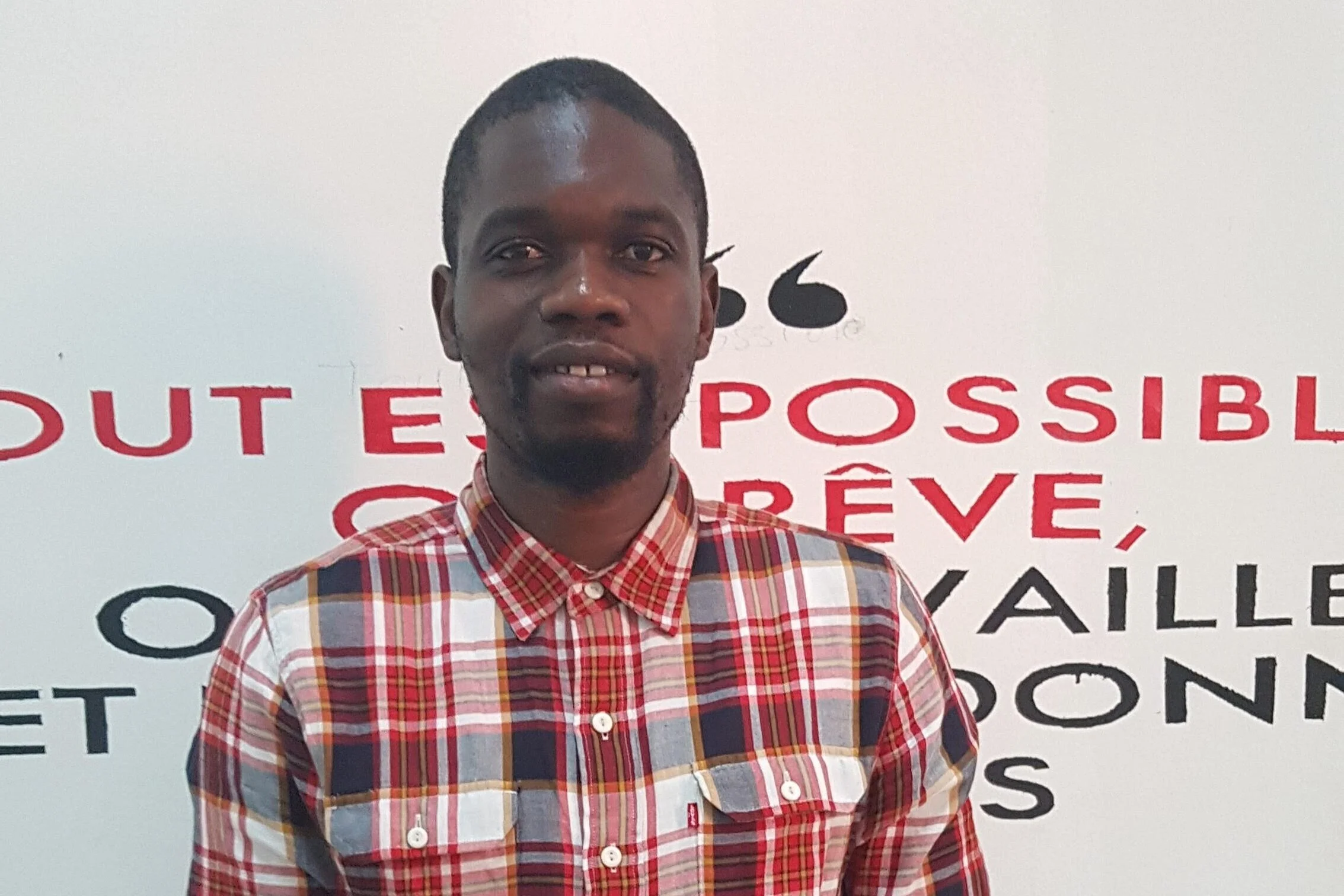Technology and Public Health in Western Africa
An inspiring Local Video Trainer and new member of our Board of Advisors, A.S. Douno began working with illuminAid in 2015 during the peak of the Ebola Outbreak in Liberia. Ever since, he has been a key player in many of illuminAid’s projects in Western Africa including Guinea, Liberia, and Mali.
Douno’s diverse background and expertise in software engineering has enabled him to do everything from starting his very own tech company to working as the Head of the Engineering Department for eHealth, Africa.
In a brief interview, Douno shared details about his personal journey and how his career in technology and software development eventually brought him into the field of public health. His contributions have made major impacts in the humanitarian sector and he dives deep into the many trials and tribulations that come along with working in the field of public health.
How Douno Began His Career in Engineering
Douno actually got into engineering by accident. Although he originally believed he would one day become a scientist, he’d always been skilled with computers. After purchasing his own Macbook laptop back in 2007, he became interested in the simple software application called iWeb that allowed the user to build a website without writing any code.
At this time, he was living in the small town of Aylesbury, England and wanted to build a social network to meet people. He soon realized that:
Douno leading a workshop in Guinea, 2016
“The more you learn, the more you need to keep on learning!”
Douno used iWeb to start building the site, however it soon became obvious that he needed to learn to write code if he wanted to reach his goal. He taught himself HTML, then CSS, then JavaScript, and so on.
After a few months he started getting paid by clients to build web sites and applications, and has been doing so for the last 12 years.
In 2012, after attending school in London, Douno set up his own tech company called Douno Technology SARLU for software creation and building websites. He even created a school to teach others how to use computers and build websites.
At the beginning of the Ebola outbreak in 2014, there was a new need to set up an emergency response call center for people to call and ask questions or report any known cases. Douno had already created a software that worked to recruit people, and eHealth, Africa was ready to use this software to recruit people to work for the call center. Eventually, he began working full time for eHealth as a software engineer to lead software development and create applications that would be used in Guinea and Liberia.
Soon enough, every single reported case of Ebola in Guinea went through the call center. People were able to use this resource to call and report any suspected cases or ask any questions regarding Ebola. This system provides a quick transmission of information to partners like the Red Cross.
Since the COVID-19 outbreak, Douno and his team have been extremely busy and there was a need to develop new applications. Last year, they built a voice automated response system to contact anyone entering the country and assess how they are feeling and if they are experiencing any COVID-19 symptoms. This system is still used today in order to follow up with and monitor health updates.
A Day in the Life working for eHealth, Africa
As Head of the Engineering department, Douno’s role is to develop the strategic goals of the department in line with the business objectives of the organization. On a daily basis, he works with his team to implement these goals by making sure the department has all the resources required to succeed. This means holding project planning and review meetings with the team, stakeholder engagements, and reviewing codes.
How technology has been an asset to public health in Africa
“Technology has revolutionized the public health landscape in Africa. Moving from paper based forms to electronic forms has improved the accuracy and timeliness of patient data collected on the field and enabled governments and organizations to make better public health decisions, predict the likelihood of a disease outbreak in a specific area, or even simulate blood supply management in emergency situations. The possibilities are limitless”
During the COVID-19 outbreak, videos were used to provide consistent training through eLearning content to hundreds of public health staff involved in the fight against the outbreak. These videos were delivered via a Learning Management Solution.
Experience working with IlluminAid
Douno has worked on multiple projects with IlluminAid since January 2015.
With illuminAid, he explained that the best part of the process is the local involvement. The beneficiaries are eager to participate from the start. They are fully engaged and really enjoy the process of creating the videos, especially for those who have never done it before. In future projects, it would be valuable to maintain more of a follow up with past partners and beneficiaries he stated.



